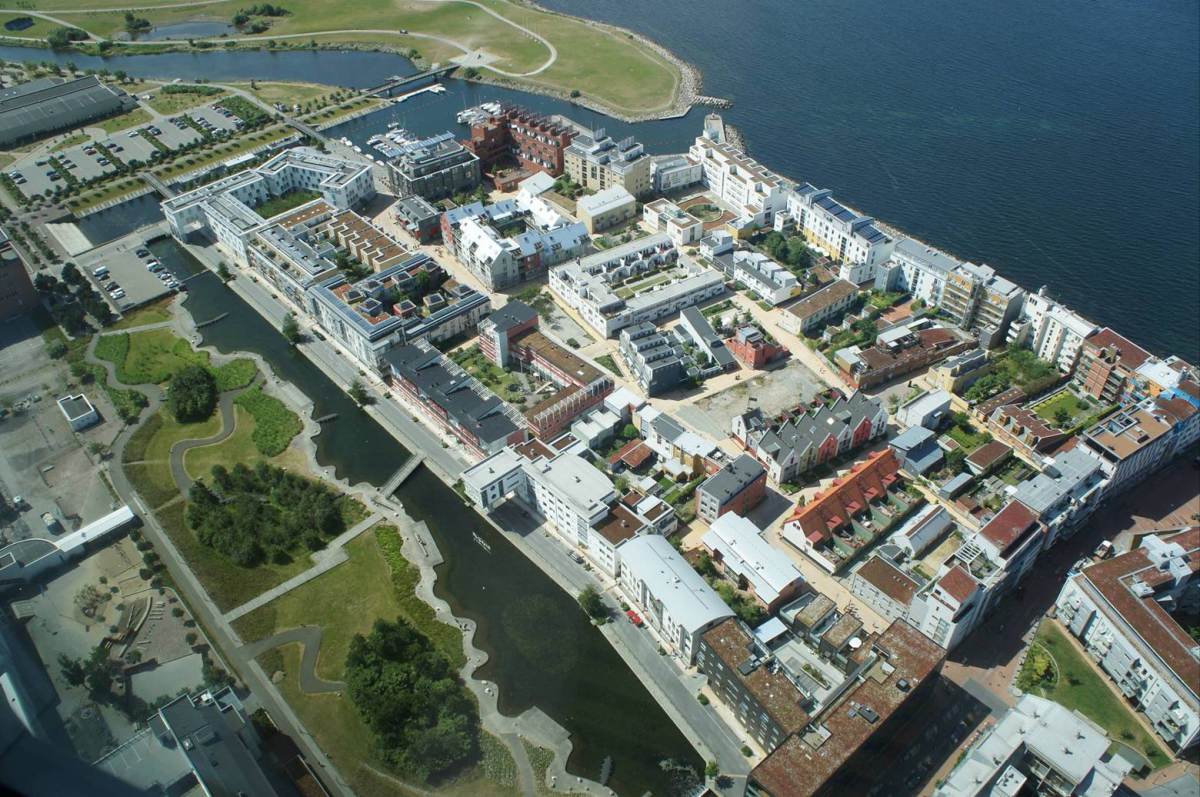Swedish Sustainable Community, "Leading Example"
chinagate.cn by Victoria Cole, July 10, 2015 Adjust font size:
The Bo01 Housing Estate in Västra Hamnen/Western Harbour of Malmö, Sweden was featured in the 2001 European Housing Expo as the "City of Tomorrow" and housed 800 apartments and a few shops, all constructed carefully with much consideration given to green issues and quality of life. Since then, the community has grown and evolved to adopt newer technologies and even greener practices.
Today, the area has over 4,000 homes and supports about 10,000 jobs. Currently, plans are being implemented to provide the area with a total of 3 schools and 15 preschools and another 1,000 jobs.

An aeiral view of the Bo01 Housing Estate [Photo credits: Google Images]
The estate accommodates mixed tenure options including rental, shared ownership, freehold and even student housing. Bo01 embraces a "waterfront" nature with its integration of canals, recreational harbors, docks and waterfront promenades. Well-kept urban parks, meeting places and social areas are also provided across the site.
Although the site does feature an underground car park, their commitment is to minimize future transport needs and car dependency. Bo01 maintains an attractive footpath and cycleway network, an environmentally-friendly fueled public transport system and systems to support electric or gas powered vehicles.
Environmentally speaking and according to the UK's former Office of the Deputy Prime Minister, Bo01 is a "leading example of environmental adaptation of a densely built urban area." The site occupies previously developed industrial land, was physically constructed to help minimize heat loss and utilizes every apartment block to develop on-plot vegetation and water courses.
Bo01 is also a 100% local renewable energy community, operating heat-producing aquifers for 85% of their consumed energy, while solar panels, wind turbines and photovoltaic panels make up the remainder. Rainwater is also treated on-site through surface run-off systems.
Consumption of water, electricity and heat is measured through technology systems installed in every home, and residents are encouraged to meet the Estate's per home target "energy use" figure of 105kWh/m per year.
70% of household waste is sorted and recycled using waste separation units installed in every home. Food waste is sorted by means of "food waste disposers" and an underground mobile vacuum system for both food and residual waste in separate tanks. These wastes are then transformed into biogas, which is used to heat Bo01 homes and power vehicles.
The entire Western Harbour area now focuses on sustainable developmentby implementing information and experiences, based on the development of Bo01experiences, into Western Harbour's currently planned neighborhoods: Bo02 (Flagghusen) and Bo03 (Fullrigaren.) The Quality Programme being used emphasizes a list of green practice keys and is evaluated by more than 10 international Universities. The City of Malmö is also developing a toolbox with different strategies for other sustainable community development programs.
Source: The Metropolis Association

